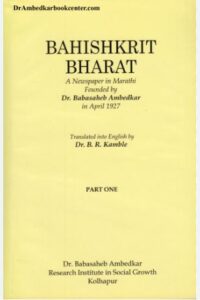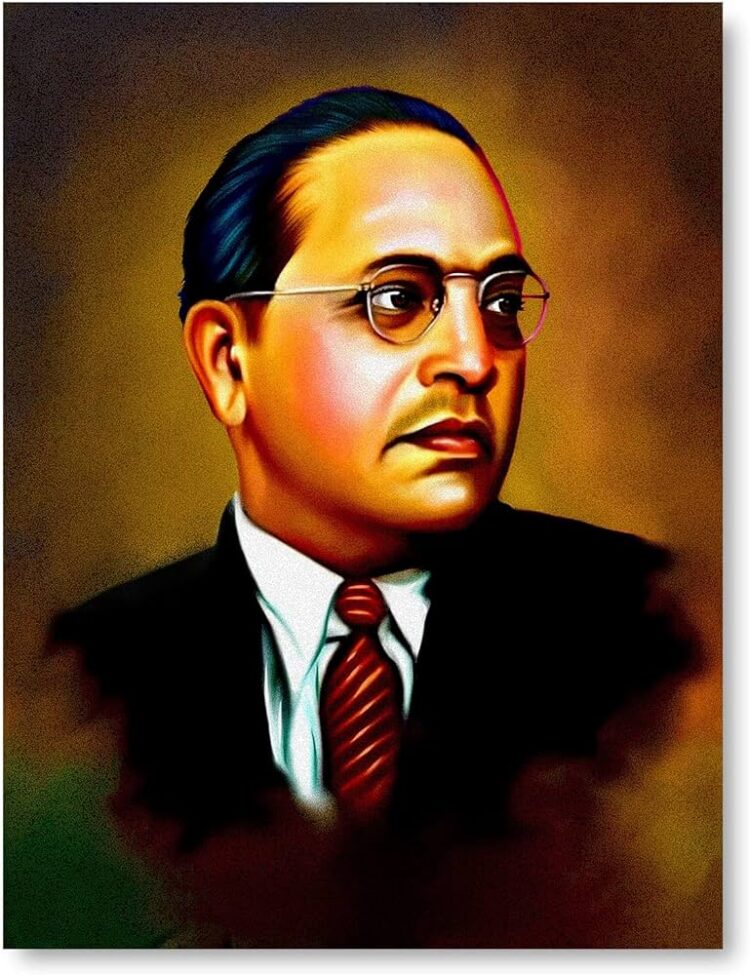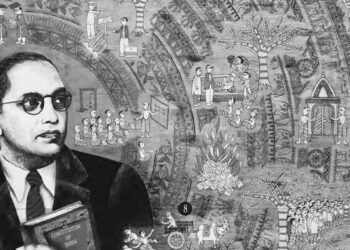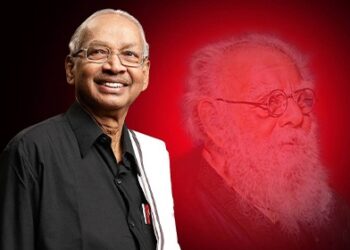(The following text is the translated version of the coverage published in ‘Bahishkrit Bharat’, the Marathi weekly founded and edited by Babasaheb Dr. B.R. Ambedkar)
Recently in Pune the Bombay provincial youth conference was organized. The conference was presided over by youth leader of India Pandit Jawaharlal Nehru. Last time Maharashtra provincial conference was organized at Pune and it was presided over by another youth leader Babu Subhashchandra Bose. That last conference was of a reactionary nature. In that conference the important question, both socially and politically, of eradicating untouchability was sidetracked under the pretext that politics and social problems are two different sides. A young leader of dash like Subhashchandra Bose remained non-pulsed before the orthodox and reactionary forces at Pune. We were worrying whether the same story could be repeated in Bombay conference though the young and youth of dash like Pandit Nehru was the president of the conference.
Though our hopes in case of Bombay conference were not cent percent fulfilled we were not at least totally disappointed. In the discussions of both the chairman of the reception committee and the president of the conference the social problems did appear at least in a small measure. Shri Gadgil, the Chairman of the reception committee told in his speech that for this youth organization the dealing with social problem is an accepted programme. Attainment of social equality is its accepted goal. He stated further that if we do not reject the practice of an idea of birth based social inequality then we are fit for our present day political slavery. I very honestly believe that the practice of untouchability has no sanction in the shastras. Jawaharlal also stated in his speech that the inequality which is dancing on the socio-religious and political stage of India must be put to an end. He then explained that in ancient day the rulers used caste to exploit the masses and the priests used religion to establish their supremacy in society.

They propagated that their rights were god ordained and birth based. The people like untouchables are openly telling the world that they have been suppressed closing all the ways of progress in the name of religion.
The president of the conference and the president of the reception committee though did not forget the importance of social problems they did not place these problems on a par with the political problems. They gave a slogan “down with imperialism.” But they ignored the issue of Brahmanism because of which the imperialism took firm root in India. These leaders of young men have failed to understand the reality that if the roots of Brahmanism are destroyed the imperialistic rule in India will collapse within no time. The weakness of India lies in her social system. Our social moralities and our social practices are against our social unity and are destructive of our strength.
It is because of these divisive forces the imperialism has strengthened its position. Hence what we would like to tell these leaders is destroy the dominance of a small class over the rest of the society in the name of the religion and ancient traditions; destroy the slavery of the untouchables and women which they are suffering for years together. This will end the imperialism which is dancing on your head within no time.
The young men who had gathered at Poona for Poona conference on their part had no sufficient knowledge of social condition of this area. And the leaders who mostly came from high caste did not have enough knowledge of the composition of people in society. Therefore, by ignoring social problems the importance was given to the political problems only.
However, they made passing references to the caste system, eradication of untouchability and the progress of women. Instead of doing all this by passing resolutions in favour of some social reforms they would have served the purpose better had they passed the resolution that the young men and the young workers should actively participate in eradicating the caste system and in the programmes of anti-untouchability and of women liberation. The resolution of complete freedom of India was passed with thunderous applaud. It was also decided unanimously that 10th May, 1857 was the Day of Mutiny of 1857 and it should be celebrated as the day of freedom of India. The resolution that the youth of India should use Khadi (home-made cloth) compulsorily was also passed. If we look at the conference from the point of view of eradicating untouchability the conference cannot be said to have gone on successfully. And it was not expected also. The untouchables need, at present, the social reform movement. If there is any change in the social outlook of the touchables that is much essential for solving the problem of the untouchables. Even though the untouchables are carrying on their movement on their own with their own idea of self-help, their movement will strengthen further if any change in the outlook of the caste Hindus takes place.
India’s political freedom for which the caste Hindu leaders are struggling by all means is that Swarajya is not going to be equally beneficial along with the caste Hindus to the untouchable communities then the swarajya will be the perpetuation of the slavery of the untouchables under the tyranny of the caste Hindus. This swarajya will be another form of slavery of the untouchables under the new rule of the touchables is the fear of some leaders of the untouchables. Our fear is baseless. Under the swarajya rule, they say that, untouchability will be the thing of the past and it will vanish in no time from the social scene of India. The leaders of such arguments have been slapped by Shri E.V.Ramsamy Naicker recently in his speech as the president of the recently organized social conference in Madras. Shri Naicker is a freedom fighter, Gandhian in thought and action but at the same time believer in the social transformation as must for India. He said the following from his presidential chair.
“There is a class of people in this country that is not permitted to use the public roads; it is not permitted to enter the temples and worship the god; it is not permitted to draw water from the public tanks and public wells. It is better if such a country perishes by earth quake or by rising volcano or by submerging in the sea. If God is merciful he should have destroyed this country long back. How is it that a nation of this kind is not ashamed of asking for colonial freedom or for complete freedom? Some politicians say that under swarajya the untouchability will be the thing of the past. My answer to them is that all the rules like the rule of Dharmaraj, Ramraj, Harishchandraraj and gods and goddesses of this country are responsible for the birth and growth of this heinous practice of untouchability. If these kings and their kingdoms are returning under the swarajya it is just imaginable what will be the condition of untouchables in swarajya.”
The above stated views will reveal to the reader that the fear that the untouchables entertain about the self-rule of the touchables is not absolutely baseless. The eminent leader and patriot like Ramsamy Naicker expressed the fear of the self-rule of the touchables for untouchables. In fact the untouchables need swarajya (self-rule) and their urge for swarajya is genuine and they are king in it. But they want a swarajya where their humanity will not be murdered and their rights are properly safeguarded. The untouchables want this kind of swarajya and we have demanded this kind of swarajya in our demands made before the Simon commission, and we have kept up our efforts in that direction.
Courtesty: ‘Bahishkrit Bharat’
(The Newspaper in Marathi, founded and edited by Babasaheb Dr.B.R.Ambedkar
in April, 1927)








